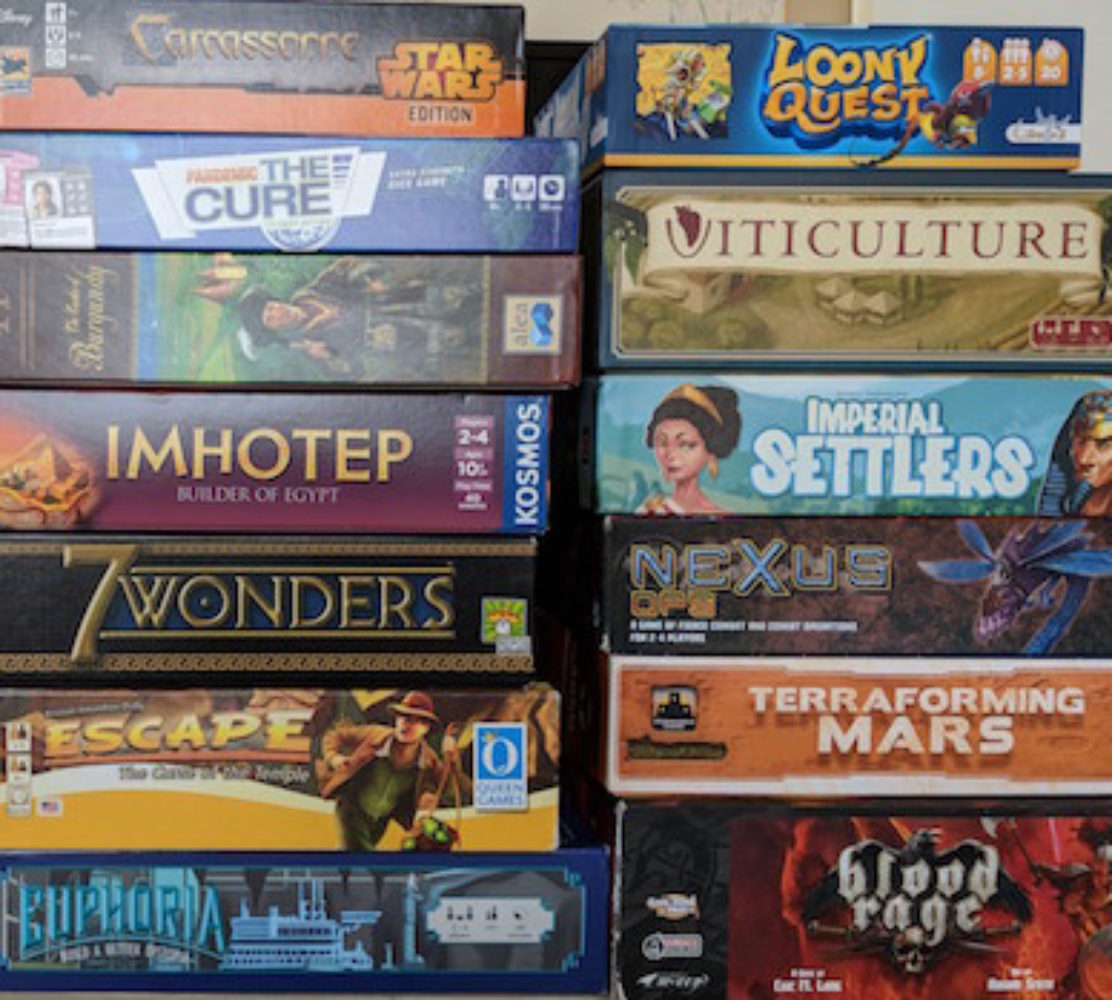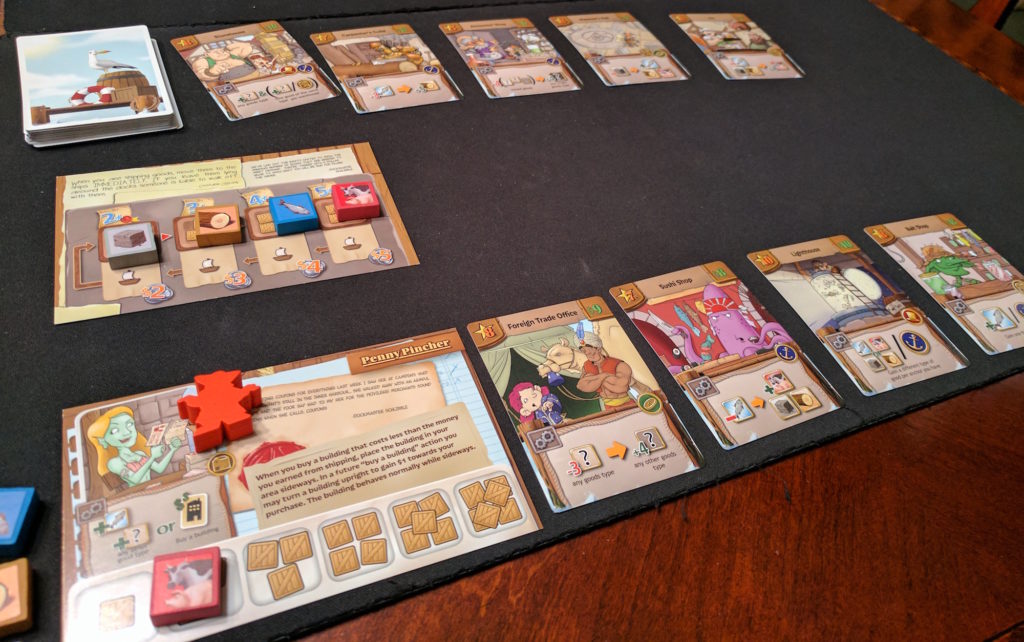I’m playing a board game every day this month and blogging about it (I did a similar challenge last year). Feel free to join me during my Every Night Is Game Night: My Daily Play & Blog Challenge. And tweet me with what you’re playing these days!
Two months ago I got Harbour off my Shelf of Shame and it’s a cool little worker placement game. Here’s what I wrote after I started playing it:
Players race to buy four buildings from a common pool first. Each building has a cost payable by one or more goods from the current player. On their turn, a player will send their worker meeple to a building and perform the action(s) listed on it; often, it’s to trade for more goods, which can then be used to buy a building. Players have a home base that they can return to for more actions, as well as travel to an opponent’s buildings to perform their actions (although this costs one good).
What makes Harbour so much fun is the economic mechanism in the game. Whenever a player buys a building, they must “ship” enough goods to pay for it. So, if the player has 5 fish and 3 lumber and the current market has fish at $5 and lumber at $3, then the player can ship those goods for $8 and buy any building up to $8. Then, after the purchase has been completed, the market shifts, with the fish and lumber being worth less, while livestock and stone go up in value.
It’s a neat part of the game, trying to time your purchase just right so that you get the most money for your goods. More often than not, an opponent will buy something and change the value of your goods. Thankfully, there are buildings with powers that allow you to adjust the market to something more to your liking.
After a dozen plays (mostly solo), I still enjoy Harbour. Tonight I played the 20-move solo variant and scored 32 points, which is on the low end of what I usually get. There’s an official solo variant included with the game, but I haven’t played it yet since it seems fiddly: you have to keep track of a dummy player.
It only takes 15-20 minutes to play this variant and just like the regular game, you’re trying to optimize the amount of goods you receive that turn. With the 20-move limit, you need to get those goods ASAP in order to buy buildings. I typically end up with four buildings at or near my 20th move and score somewhere in the 30-point range.
Harbour would be a good introduction to the worker placement mechanism for new gamers and I’d recommend it to more serious gamers as a worker placement filler.

